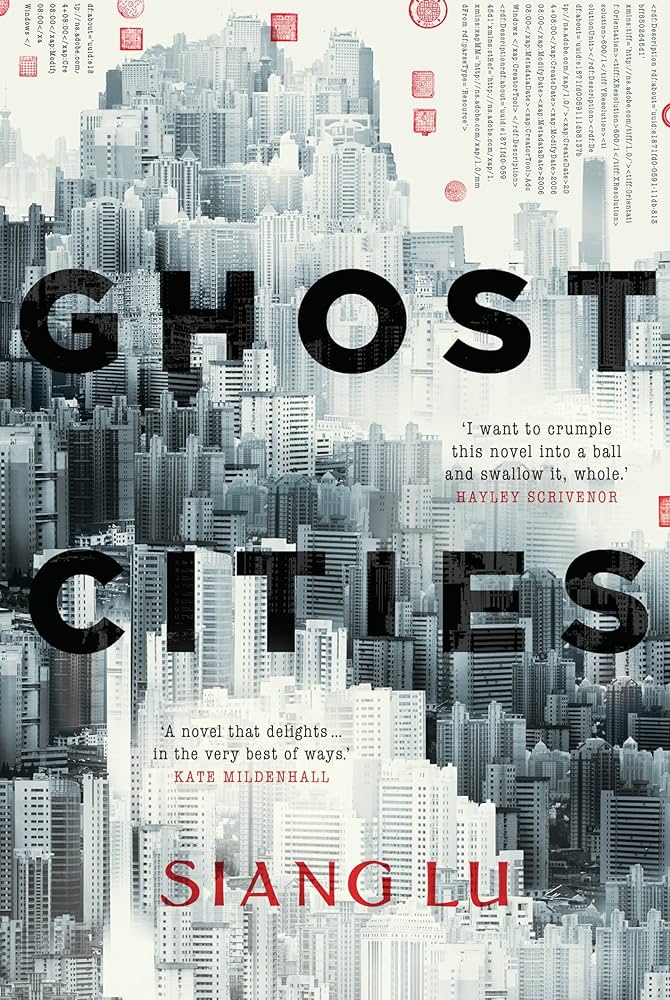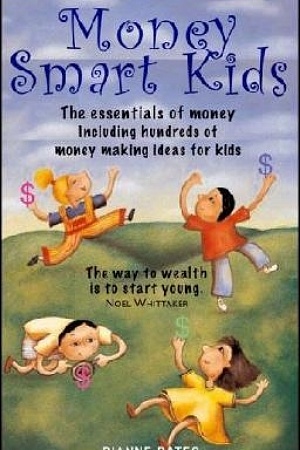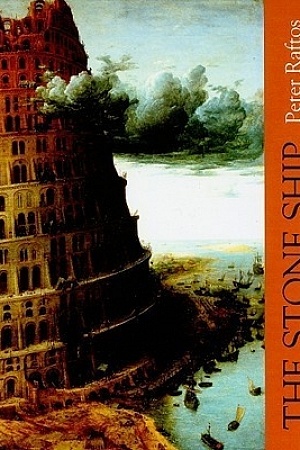Ghost Cities
University of Queensland Press, $32.99 pb, 289 pp
Sliding places
Siang Lu’s polyphonic début novel, The Whitewash (2022), occupied a unique place in Australian fiction. It was written as an oral history, with a cast of voices, sometimes in conflict with one another, coalescing to tell the story of the rise and fall of a Hollywood spy blockbuster. The film was supposed to star the first-ever Asian male lead in such a role, but he was replaced by a white actor at the last minute. Blending real and invented film history, The Whitewash was an original work of satire, providing a breath of fresh air in the local literary landscape – even more so considering that it dealt so adroitly with matters of race and representation, normally approached in a much more conventional, and predictable, way.
Ghost Cities, Lu’s second novel, also takes an ambitious and inventive approach. This time, it is through dual narratives that both highlight something true about modern life and work through the absurdist lenses of late capitalism and rapid technological advances.
The first thread involves Xiang Lu, a young man living in Sydney who is fired from his job as a translator at the Chinese Consulate when it is discovered that he has been using Google Translate for his work, and cannot in fact speak the language, let alone interpret it. When he goes viral as #BadChinese, a tricksy film director, Baby Bao, senses an opportunity for marketing success.
The second takes place centuries earlier via a series of fable-like tales about an ancient emperor’s rule, and his efforts to ensure that his power and influence remain uncontested. These narratives loop around one another, through surprising and often perplexing paths – from the creation of thousands of indistinguishable emperor clones to a cautionary tale about a power-hungry mountain. Yet another strand concerns Wuer, the emperor’s concubine, who embarks on a secret journey to recreate all the destroyed books, and therefore knowledge, of the empire.
The initial thing tying these two timelines together is Death of a Pagoda, a text written in the ancient setting but unfinished due to the exile of the author, who was one of three scholars summoned to compose the emperor’s origin story. The emperor, incensed at the work produced by the scholars, which painted him in a negative light, banished them all to the Six Levels of Hell and destroyed the Imperial Library and all the books within it – another act of control and censorship. In the modern timeline, Death of a Pagoda is being made into a film by Baby Bao, who latches onto Xiang’s virality to turn his sprawling vision into a reality.
That venture whisks Xiang across the world, with interpreter and love interest Yuan in tow, to the dystopian ghost city of Port Man Tou, a fictionalised and animated version of China’s abandoned megacities. There, he discovers ‘a film set within a city within a film set’. So begins an existence reminiscent of The Truman Show (1998), where reality and simulation blur, and citizens are all paid actors. The Department of Verisimilitude is the body that oversees Port Man Tou, ‘to make sure every inch of the city is believable’. Xiang cannot even be sure that his romance with Yuan is not simply an extension of this simulated world.
Baby Bao – or as he is later simply known, The Director – and the emperor are mirrors to one another across the timelines. Both display a kind of megalomania, a desperate desire for control and order. Xiang and Yuan – and, in the past timeline, Wuer – are the dissenters who represent a breaking away from tradition, a refusal. They are the people writing their own stories (and histories) in the face of authoritarianism.
Lu is a playful and imaginative writer who takes obvious pleasure in the possibilities of language – its limitations and permutations. It is evident in his wordplay – the two parts of the book are titled, respectively, ‘Assimilated Man’ and ‘A Simulated Man’, and the name of the city of Port Man Tou suggests another assimilation. Untranslated Chinese appears throughout the novel, which keeps the reader at a remove similar to that which Xiang feels – we might approach something resembling the truth or comprehension, but it remains tantalisingly out of reach.
As in The Whitewash, Lu takes an interest in the film world and how stories are constructed (or twisted, depending on your perspective) for an audience – and what that says about the society they exist in and cater for. In Ghost Cities, it is evident in the way that The Director builds his set and story, and how Xiang becomes a pawn in that game. Film is the record-keeper of choice in the modern timeline, as books and scripts were in the past, but it bleeds into real life, too – again, the difference between fact and fiction melts into a liminal third space.
The city of Port Man Tou ultimately becomes a character in and unto itself, relying less on human interaction and involvement as technology develops and allows it to bloom undisturbed, as it ‘replaces itself with new and stranger iterations’. Xiang and Yuan watch from afar with a mixture of fear and admiration, reflecting the experience of being a human in an increasingly automated world.
Reading Ghost Cities can feel discombobulating, flitting back and forth between these disparate timelines and stories. The connection between the two is sometimes tenuous and the scope of it overwhelming, but like a jigsaw puzzle, the challenge is in finding the places where two pieces slide together seamlessly – and sometimes surprisingly. It is an impressive piece of work that blends genre tropes, storytelling techniques, and observations of the modern world to cement Lu as an assured voice in experimental Australian fiction.












Leave a comment
If you are an ABR subscriber, you will need to sign in to post a comment.
If you have forgotten your sign in details, or if you receive an error message when trying to submit your comment, please email your comment (and the name of the article to which it relates) to ABR Comments. We will review your comment and, subject to approval, we will post it under your name.
Please note that all comments must be approved by ABR and comply with our Terms & Conditions.